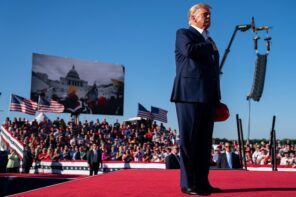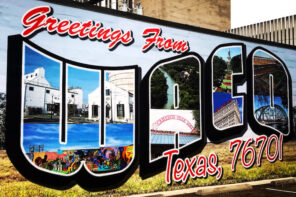President Obama’s greeting as-salam alaykum to the assemblage hosted by Al Azhar and Cairo University brought vividly to my mind another African American man’s fateful trip to Cairo: Malcolm X.
Malcolm’s trip to the Cairo Mosque in 1964 did not garner the same fanfare and anticipation that President Obama’s arrival in the Middle East did (except, perhaps, for the FBI agents assigned to follow him), but his pilgrimage to understand Islam at its birthplace, and the subsequent changes it bought about in his spiritual, social, and political life have ramifications that are echoed in President Obama’s trip to the Middle East.
Brother Malcolm’s life was indelibly changed through his participation in the hajj; the deepening of his Muslim faith, the focus on the solidarity of humanity rather than racial prejudices, and observing the battle against colonialism. He returned to the United States a different, and for some, a more dangerous man. Forging a new organization called the OAAU, Brother Malcolm began his attempt to break the bonds of the racial oppression that had separated him throughout his life from others. Many American Christians could benefit from a pilgrimage—literally, or at least figuratively—to begin to change hearts and minds here, not just over in the Middle East.
Stating that he would “Be conscious of God and speak always the truth… [a]s the Holy Qur’an tells us,” the president’s speech marks a radical departure from the prophetically-laden American right-wing politics and rhetoric that cast America and Israel together waiting for Armageddon to occur at the hands of Arab countries. Rather, President Obama’s deft maneuvering between his father’s Islamic beliefs and roots, his Christianity, the Maronite and Coptic communities, Jews, Sunnis, and Shias represents not only a desire to bring together parts of the Middle East, but to bring together these groups in America as well.
A case could be made that this was not only a speech to diffuse the Middle East’s distrust of America, but to deconstruct the simplistic political and religious mistrust of American Christianity towards Islam. The preoccupation with the “end times,” apocalypse, the 10/40 window and other millennialist beliefs that fuel religious fervor and political alliances in this nation deserve greater scrutiny and accountability. When President Bush stated that God had told him to go into Iraq, the results of the conflation of these beliefs hold our nation knee deep in a quagmire, fighting two fronts in the Middle East that will cost us materially and spiritually for years to come.
Preoccupation with prophetic musings related to Israel and the Middle East fuels a major segment of the Christian book industry, and the televangelist circuit. The preoccupation with prophecy, and attempts to outguess the ancient writer of the book of Revelation, is just as toxic as misinterpretations of jihad in the Qur’an. The purveyors of these theological beliefs continue to influence politicians and lobbyists, ensuring that our nation remains mired in a stagnant pool.
Separation of Church and State? I don’t think so.
Like Brother Malcolm, it is imperative that the president returns home to bring to his own people the message of religious tolerance. One could make a case that the Cairo speech could be made in Dallas, Texas; Louisville, Kentucky; or Liberty University with just a few modifications and replacing the Qur’anic verses for New Testament verses. We need a healthy discussion about religious freedom, extremism, and women’s rights in America. Too often Americans consider the radical and the fundamentalist to be overseas. We have had home-grown terrorists; remember, Timothy McVeigh or last week’s execution of George Tiller.
The stakes for President Obama and the nation are not only political peacemaking, but a religious peacemaking that has profound implications across the the Middle East and in America. Ask the average Christian in the United States, and they probably don’t realize that Eastern Christians in historical areas of Turkey, Palestine, Lebanon, Cairo, and other places have experienced just as much persecution and trouble as Jews and Muslims. Many historic early Christian communities and sites of worship that have existed for almost two thousand years have been destroyed in the last seven or eight years as a result of the war in Iraq, and other conflicts in the region.
Yet American Christians are more preoccupied with the supposed loss of Christian values and how “America is no longer a Christian Nation.” These hollow vocalizations are accompanied by invoking the founding fathers. While American Christians are mewling piteously, Christians across the world are experiencing real persecution and martyrdom for their faith. Just once, I’d be ecstatic if conservative Christians would behave like the founding fathers. Learn about and respect other religious traditions. Seriously, does anyone believe that if Thomas Jefferson came back today that he would accept an invitation to speak at Liberty University, where it is a sin to be a Democrat? I doubt it. Liberty University would be too pedestrian for his sensibilities and intellect.
It is time for American Christians to become educated and aware of the religious diversity of the Middle East. By calling on the founding fathers’ tolerance of other religious traditions, just as Brother Malcolm called on the founding fathers to demand racial equality, we prove to the Middle East that this is not only a resetting of America’s relationship to the Middle East, but a serious consideration of our own problematic Christian beliefs that continue to fuel violence, misunderstanding, and hatred.
Like Brother Malcolm, American Christians need a revelation concerning their place in the world, and a reconsideration of the Bible and its place in the world’s religious traditions. Only then will they be able to to resist the hollow cries for values without the virtues of scripture. Only then will we can truly begin to live up to the democracy that the founding fathers like Jefferson, Washington, and Adams fought for.




